W55 sprinter Colleen Barney, the retired Newport Beach probate attorney and “American Ninja Warrior” veteran, was judicious in responding to my candidate questions ahead of this week’s annual meeting in Orlando. The biggest revelation in the Q&A is her running for vice chair of USATF Masters T&F Committee on a slate with chair candidate Robert Thomas. She would succeed Robert as vice chair. Although I gave candidates a Dec. 1 deadline, I’d still post any responses I get in the next few days. In any case, join me in thanking Colleen for taking this effort seriously.
Another eye-opener is her suggestion that targeted drug-testing of masters may occur. She says that USADA, “upon credible evidence, … may need to test an athlete who has been accused of violating the anti-doping standards.” I hadn’t heard this before.
Here’s the Q&A:
Masterstrack.blog: How would you grow masters track — both in USATF membership and major meet participation?
Colleen Barney: With roughly 12,500 USATF masters members, I’m not sure that there is an issue with actual membership at the national level. I do, however, think that there are ways that we can increase participation in our meets.
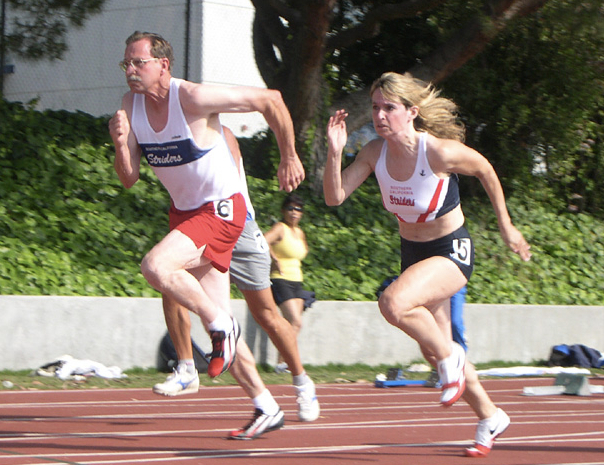
Colleen Barney trains with Doug Smith in 2005. She won her first major title (in W35) at the 2003 Puerto Rico world meet. Photo by Ken Stone
I would like to see us first focus on increasing participation at the association and regional levels and i think that starts with better marketing — social media, partnering with local road races to advertise to their competitors, and additional support from the national committee for the associations and regions.
What changes, if any, would you make in national masters budget allocations? What would you cut? What would you boost?
As an officer, I would expect that my job would be to listen to the membership, through their representatives on the executive committee, and to come to some consensus as to the best uses of the funds that are allocated to us by the national office. Until I have those discussions with the rest of the executive committee, I could not effectively answer this question.
Is USATF Indy HQ supporting masters track sufficiently in funds and support? What changes would you like to see?
Of course, it would always be nice to see more money for masters track and field, but I appreciate the national office’s support. I do not have enough information regarding the budget process and negotiations with the national office to be able to give a more thorough answer at this time. I will always advocate on behalf of our committee, but I think it is reasonable to take what we are allotted and try to find ways to stretch that money as far as we can.
If elected, would you commit to posting your annual budget and all meeting, officer and committee minutes on usatfmasters.org?
I have no problem posting committee minutes on the website. I cannot commit to the budget without understanding any restrictions USATF may have regarding posting the budget. Philosophically, though, I have no problem posting the budget. I am not aware of any formal officer meetings, but to the extent there are such meetings, I have no problem posting the minutes of those meetings.
Would you also commit to making available upon request of any USATF member the applications for USATF masters age-group records? If not, why not?
I don’t understand this question. Are you asking if any time a member wants to see a records application, will we provide it? Again, philosophically, I have no problem with this, but I do worry about the practical aspects.
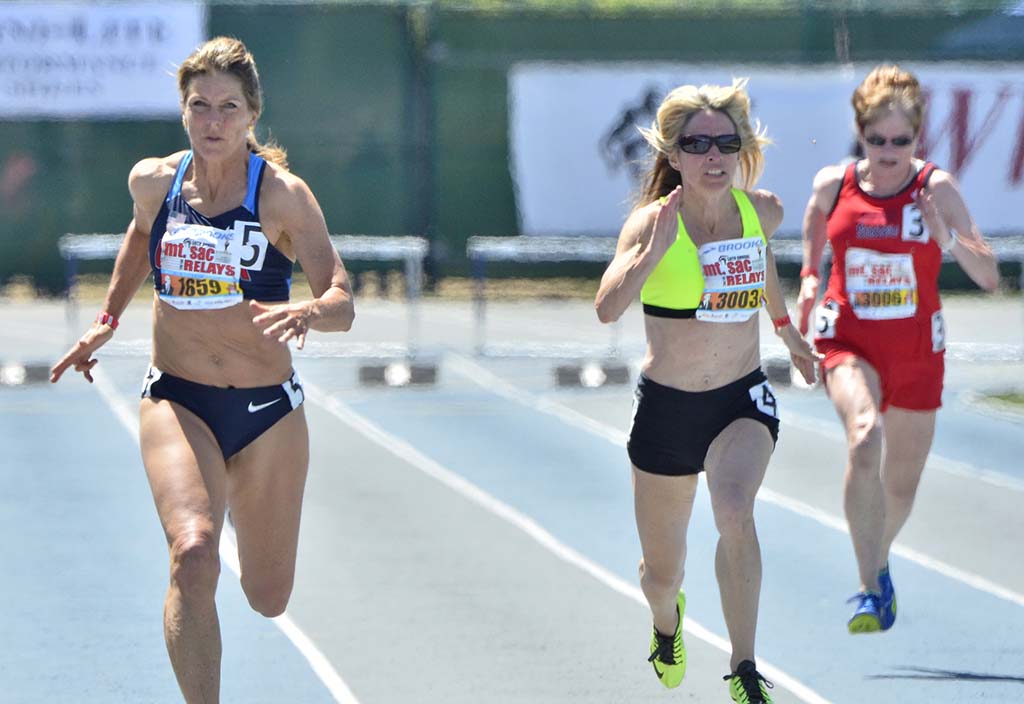
Colleen Barney races Joy Upshaw (left) and Kathy Bergen (right) at 2016 Mt. SAC Relays. In 2018, Upshaw was among those urging Barney to apply for “American Ninja Warrior.” Photo by Chris Stone
The members of the records subcommittee are volunteers (as are all of the rest of us). It takes a great deal of time and effort to collect and review records applications and I would not want to slow that process down by requiring them the respond to random requests for applications.
Is there a reason why any member should be able to request an application? Perhaps there is a better way to handle [such requests], such as publishing the applications following a determination by USATF to ratify (or decline to ratify) the record in question.
Does USATF masters do enough drug testing? If not, what would you support — beyond the current testing at outdoor and indoor nationals? Would you like to see out-of-competition testing? Should masters drug-testing be limited to certain age groups?
Much like never having as much money as you’d want, I think we would always want to do more drug testing. The problem, as I see it, is the expense. There is no way we could afford actual out-of-competition testing. (And with 12,500 members, how would we manage whereabouts protocols, etc?).
I think one way to be more effective might be to select one regional meet per year for drug testing (of course, logistically, that could be difficult, as the site must be USADA compliant). As for limiting testing to certain age groups, I am not naive to the fact that we are finding positive results across a multitude of age groups, so I am not sure that taking some of those groups out of the testing pool will not just be an open invitation for athletes in those groups to do “whatever they want” without fear of consequences.
Drug-testing at masters nationals is officially random. But testing sometimes appears targeted at certain individuals and age groups. Do you commit to guaranteeing that tests are randomly executed? Would you commit to announcing the number of tests made at any given meet? If not, why not?
I am certainly willing to commit to guaranteeing that the majority of tests are randomly executed. There are times, however, where I would think, upon credible evidence, that USADA may need to test an athlete who has been accused of violating the anti-doping standards and I do not think it is our place (or even in our control) to stop such testing. I am not willing to commit to announcing the number of tests made at a meet as I think that could result in athletes being more likely to play the odds if they thought the number of tests were sufficiently low (in their estimation).
Mt. SAC opted out of hosting 2025 outdoor nationals, saying it feared losing money on the event. What changes in meet selection are needed to avoid a repeat? Can USATF masters lower its financial demands of LOCs?
I believe the Mt. SAC situation was more nuanced than the premise of this question. I do believe one of the jobs of the executive committee and its officers is to ensure that the partnership between LOCs and the USATF MTF committee is respected and I would definitely want to work with the LOC to find ways to make the costs more manageable for them (without diminishing the experience of the event for the athletes).
There is always a give and take with these events. For example, do we require the LOC to provide shuttles to and from the hotels and venue at the cost of tens of thousands of dollars? Or do we have athletes who cannot attend because they can’t afford plane, hotel, food, registration, and then a rental car in addition to all of the other costs?
We need to be respectful of all sides and try to help both our LOC partners and our athletes wherever possible.
USATF.TV does a great job of airing masters nationals, but the cost is prohibitive to many. Would you support a lower cost for accessing masters events and archives via USATF.TV?
Sure, but we have no control over USATF.TV and its costs.
Many conventions air and archive their sessions via Zoom or similar tools. Would you commit to making available live and recorded video of your general sessions and executive committee meetings?
I would be happy to do it, but I do not believe we have any control over the audio/visual demands at the annual meeting. I am willing to ask for it, though.
Should National Masters News be made free to USATF masters members, since it’s used as an official communications mechanism? Or at least be made available at reduced cost to USATF masters athletes?
It is my understanding that NMN is a privately owned publication. The fact that they publish our communications does not change that fact. I do not believe NMN is an “official” communications mechanism. Official information is sent to all members via their email addresses from the national office and is also posted on our website. So, I do not agree that it should be free or available for a reduced price to members.
Would you support a physical presence for USATF Masters at the National Track & Field Hall of Fame at The Armory in NYC?
What do you mean by support? If you are asking, would I be in favor of it, I would guess my answer would be: sure. I am always in favor of more recognition for masters athletes. But I feel like there may be more to this than what is on the face of the question, so I’ll keep the qualification to my answer above “I would guess my answer would be: sure.”
Anything else masters athletes should know about your candidacy, qualifications or plans?
I have opted to run for vice chair, because I want to run together with Robert Thomas for chair. I believe in his passion and his vision for masters track and field. And, honestly, I want to support his vision.
I began competing as a masters athlete in 2002. I have been the active athlete representative since 2020, the chair of the transgender task force, and a member of the Finance Committee for WMA. I am the current chair of the Legal Committee and the Finance Committee for WMA and am also the new treasurer for WMA. I believe in masters track and field and am willing to do the work necessary, together with Robert Thomas, to move our sport forward.
Contribute to support independent track and field journalism:

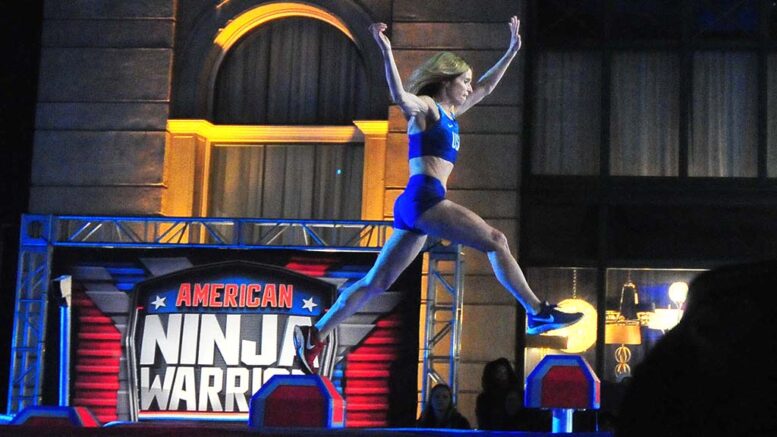
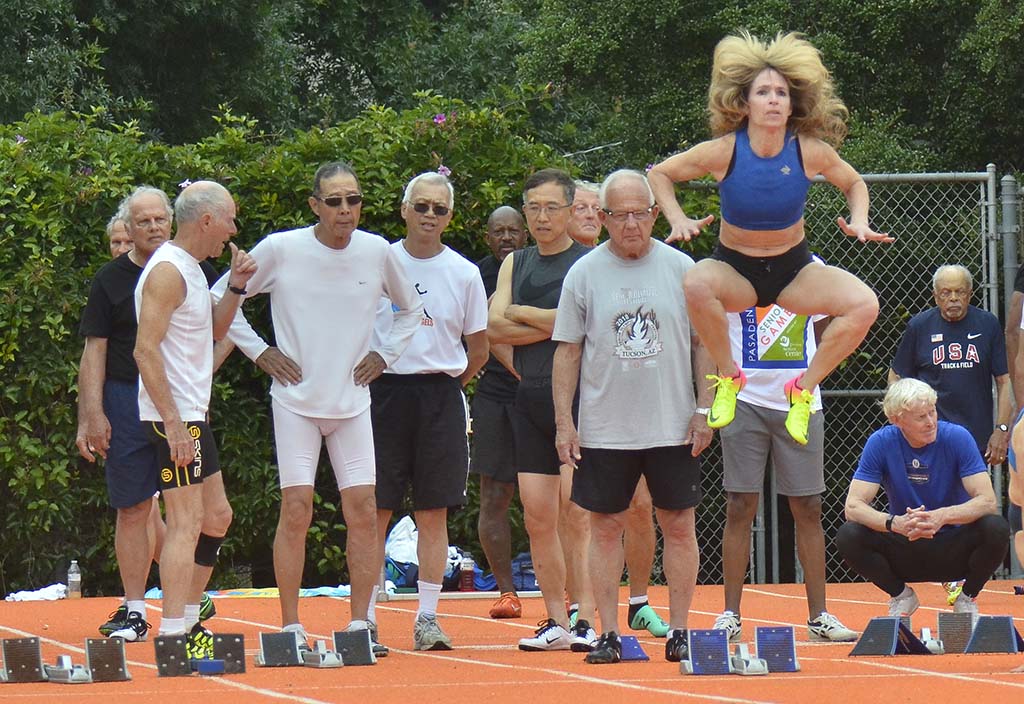
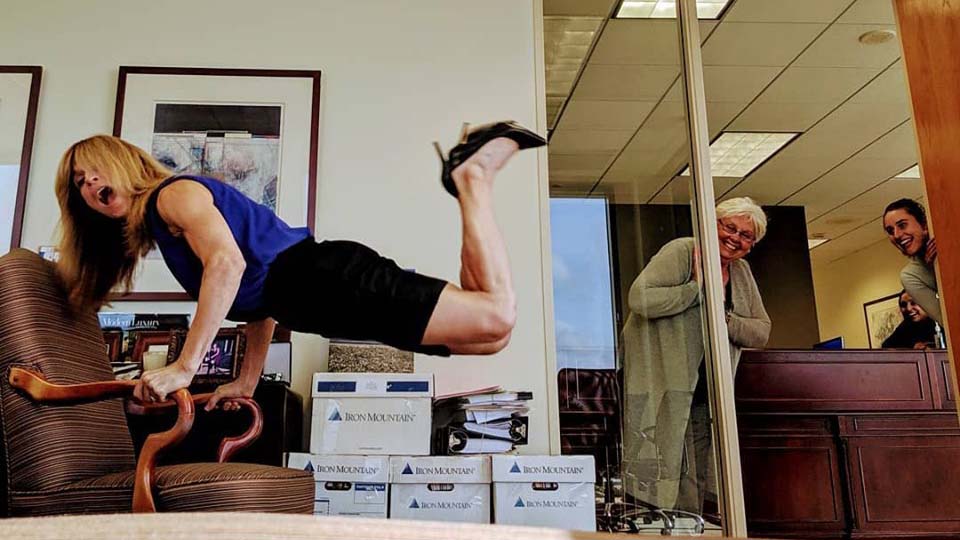

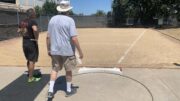
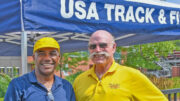

Be the first to comment on "Q&A with Colleen Barney: Masters T&F vice chair candidate is first to respond to our questions"